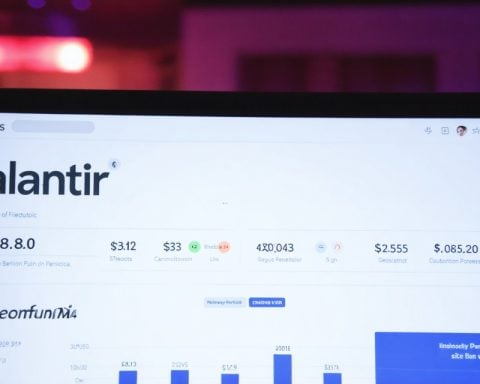Shares of Samsung Electronics took a significant hit on Wednesday, reaching their lowest point in over four years. This downturn in the stock price is largely attributed to the looming threat of U.S. tariffs under the administration of Donald Trump. As the leading global producer of memory chips, Samsung finds itself in a precarious position, lagging behind competitors like TSMC and Nvidia, both of which are better capitalizing on the surging demand for artificial intelligence (AI) processors.
Analysts suggest that Samsung’s vulnerability is amplified due to its heavy reliance on Chinese customers, unlike its domestic competitor, SK Hynix. While SK Hynix is experiencing growth by bolstering sales of high-end AI server chips to U.S. giants such as Nvidia, Samsung faces potential setbacks. Trump’s potential tariff imposition includes a universal 10% on all imports and a steep 60% on Chinese goods, which could drastically reduce the demand for electronic products incorporating these chips.
Furthermore, South Korean President Yoon Suk Yeol has expressed concerns about these prospective tariffs. There is a fear that Chinese competitors might respond by lowering export prices, creating additional pressure on Korean chipmakers in the international arena.
The repercussions for Samsung have been severe, with a 34% decline in stock value year-to-date. In contrast, SK Hynix’s shares have surged by 32%, and Nvidia’s have skyrocketed by 199%. On the broader market scale, the KOSPI fell by 1.5%, while Samsung shares extended their decline, dropping another 2.1% in early trading. SK Hynix, meanwhile, experienced a modest rebound of up to 2% after consecutive losses.
Samsung’s Struggles: Global Chip Markets Enter Uncharted Waters Amid Geopolitical Tensions
The rapidly evolving landscape of the semiconductor industry is creating both opportunities and challenges that extend far beyond corporate profits and stock values. As Samsung Electronics grapples with the potential impact of U.S. tariffs, several lesser-discussed facets of this situation provide deeper insight into its implications on global scales.
Economic Ripple Effects
The recent downturn in Samsung’s stock has highlighted how interconnected global markets are. The ripple effects extend beyond Korea, affecting global supply chains and technology sectors. With Samsung producing a significant percentage of the world’s memory chips, a slowdown in its operations can lead to shortages and increased prices for electronic devices globally. Smaller electronics manufacturers, which rely heavily on Samsung’s supply, may face production delays, costing jobs and revenue in their respective countries.
The Role of Trade Policies
Trade policies can have far-reaching effects. If the U.S. implements heavy tariffs, we could see other countries reconsider their trade relationships. This geopolitical maneuvering might even drive new alliances, as countries look to protect their economic interests. For instance, European tech firms might seek closer relationships with SK Hynix or Chinese firms to avoid tariff-related complications.
Technological Innovation at Risk
An undercurrent of this situation is its potential dampening effect on technological innovation. Companies like Samsung invest significantly in research and development to maintain their edge in the fiercely competitive semiconductor industry. Financial pressures from tariffs and reduced revenue could force Samsung to cut back on R&D. This decision could delay advancements in AI processors and other breakthrough technologies, slowing down the pace at which new, more efficient products reach the market.
Advantages and Disadvantages
– Advantages: This shift could foster diversification, with tech companies becoming less reliant on a few major players. It could also encourage Chinese manufacturers to develop more competitive products, increasing consumer choices and innovation.
– Disadvantages: Conversely, increased costs and reduced competition might lead to higher prices for consumers and stymie global technology growth. Emerging markets, heavily reliant on affordable electronics, could be hardest hit, slowing their digital evolution.
Controversies Surrounding Tariffs
The potential tariffs have sparked controversies, questioning the effectiveness of such economic policies. Historically, tariffs have been a double-edged sword, protecting domestic industries but often at the expense of international relations and economic efficiency. Could these tariffs protect U.S. interests without causing collateral damage to allies like South Korea?
What Lies Ahead?
Will Samsung adapt by shifting its market strategies, or could it signal the beginning of a new era where different players rise to dominance in the chip market? How will this geopolitical tension shape the future of global technology alliances?
For deeper insights into the chip industry’s current landscape and the geopolitical influences at play, consider exploring these resources:
– Samsung
– Nvidia
– TSMC
In this challenging environment, the global semiconductor industry stands at a crossroad, with changes that could redefine technology’s role in our lives. The world watches closely, aware that any decision made today can have far-reaching consequences tomorrow.





















